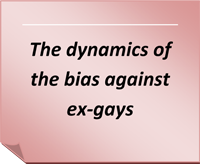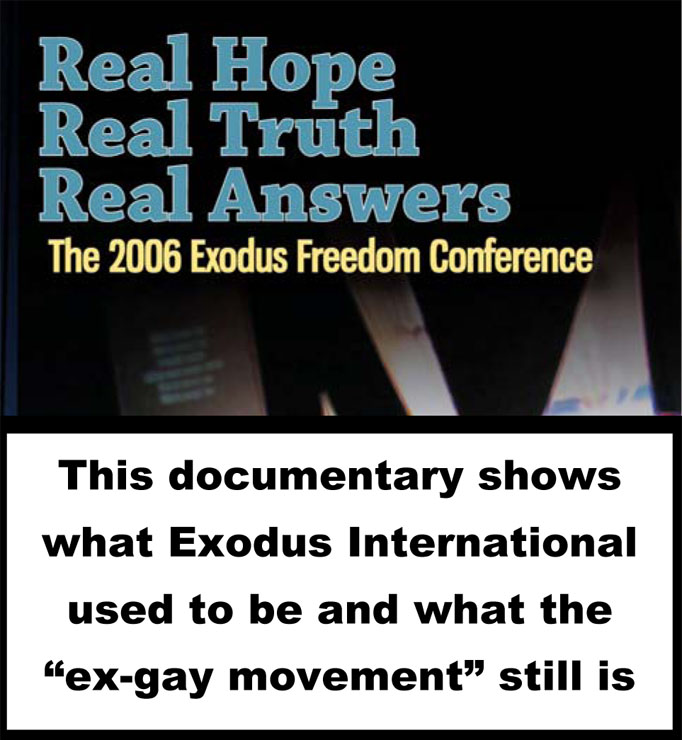NARTH responds to WHA statement on human sexuality
December 12, 2013
The following excerpts are from the “NARTH Response to the WMA Statement on Natural Variations of Human Sexuality” on the NARTH website: “The National Association for Research and Therapy of Homosexuality (NARTH) is greatly dismayed by the recent statement from the World Medical Association (WMA, 2013), which is not so much a reflection on human sexuality as it is a clear attempt to discredit any and all professional attempts to assist clients who wish to modify same-sex attractions and behaviors. NARTH observes that the WMA’s statement in many places lacks scientific integrity, sometimes providing conclusions that are no more supportable than speculation and at other times failing to provide adequate scholarly context. Given these serious shortcomings, NARTH believes that it is necessary to provide the public with information WMA irresponsibly neglected in their statement.”
“WMA states without equivocation that homosexuality is ‘without any intrinsically harmful health effects.’ This contention is exceedingly difficult to reconcile, for example, with a recent comprehensive review that found and overall 1.4% per-act probability of HIV transmission for anal sex and a 40.4% per-partner probability (Beyer et al, 2012). These authors noted that, “The 1.4% per-act probability is roughly 18-times greater than that which has been estimated for vaginal intercourse” (p. 5). In the United States in 2009, men having sex with men accounted for 61% of new HIV/AIDS diagnoses despite the fact that gay men are estimated to represent only 2-4% of the general population (Prejean et al, 2011; Savin-Williams & Ream, 2007). While such statistics may be influenced somewhat by stigma and discrimination, they appear ultimately to be grounded in biological reality. NARTH is perplexed how the WMA could not consider such tragic medical health effects as an intrinsic and harmful risk of male homosexual behavior.”
… “NARTH considers the WMA’s recommendations to be an unacceptable encouragement of legislative or other intolerance and discrimination against sexual minorities who freely choose to receive help in order to overcome or diminish their unwanted sexual attractions, behaviors, and/or identity. This includes youth who themselves freely seek such services with the consent of their parents. Legislative or other intolerance and discrimination against medical and mental health practitioners, educators, and researchers, is similarly unacceptable. The WMA would seek to prevent these professionals from offering their expertise to persons whose sexual minority concerns are unwanted and who, after being provided with informed consent, freely choose help in order to resolve, diminish, or manage them.”
“Organizational intolerance and discrimination such as that recommended by the WMA, if enacted in any national or international jurisdiction, would be a violation of human rights as recognized by the Universal Declaration of Human Rights (UDHR) (http://www.un.org/en/documents/udhr/ index.shtml#a11), and the Convention on the Rights of the Child (CRD) (http://www2.ohchr.org/english/law/crc.htm). These include the rights of adults, as well as children, to: (1) Freedom for the full development of one’s human personality (UDHR, Article # 26; cf., CRD, # 18); (2) Medical care and necessary social services (UDHR # 25; cf. CRD # 3); (3) Freedom of thought, conscience, and religion (UDHR # 18; cf., CRD # 14); (4) Freedom of opinion and expression, which includes the freedom to hold opinions without interference and to seek, receive and impart information and ideas through any media (UDHR, # 19; cf., CRD, # 12, 13 & 17); and, (5) The protection of the law against arbitrary interference with one’s privacy or family and attacks on one’s honor and reputation (UDHR, Article 12; cf., CRD # Articles 4 & 5).”
“These are but a few of the concerns that NARTH has with the WMA statement, but they should be sufficient to illustrate the statement’s deeply flawed and misleading portrayal of change-oriented psychological care.” …




